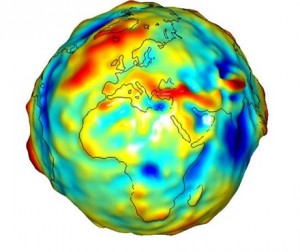
After spending 13 years (give or take) at school you are faced with a tough decision: what to study at University (if anything at all, the academic path may well not be for you)? You sift through a bunch of university prospectuses and try to plan your future. Of course, lots of things can change, prior to, during and after you finish your studies. Nevertheless, there is no harm in starting to plan early, while at the same time being open to new opportunities and avenues as and when they come your way. In this post, Sam Illingworth, Lecturer of Science Communication at Manchester Metropolitan University, explores some career choices open to those who chose to study the geosciences at undergraduate level.
It’s that time of year again when undergraduate students are either returning to University, or starting their courses for the very first time. All across Europe there will be tens of thousands of young geoscientists asking themselves the same nagging question: have I made the right choice here?
For many of us, our experiences at University help to shape us into being our future selves. We make strong friendships, experience the highs and lows of living away from home or in a big city for the first time, and we ultimately get our first taste of independent learning. For some this is enough to convince them that they have found their calling, that following on from their undergraduate degree they want to specialise further by taking an additional postgraduate qualification. But for others, this is simply a step too far; they enjoyed their learning experience but now they want to go and put this into practice. So what exactly can you do with a geosciences degree?
A quick job search for the word ‘geosciences’ on a careers website revealed a rather long list of opportunities, which included the following:
- Exploration geophysicist
- Software developer
- Reservoir geologist
- Mine engineer
- Earthquake catastrophe model developer
- Geoscientist
Whilst some of these jobs are fairly specialised (e.g. reservoir geologist), other such as ‘geoscientist’ are more general positions, which are looking to utilise the specialist skillsets that you have developed during your undergraduate training. And let’s face it, if you enjoyed learning about geosciences at university, some of these jobs sound extremely interesting; who wouldn’t want to tell people that they were an earthquake catastrophe model developer?

A map of deviations in gravity from a perfectly smooth, idealized Earth. The gravity model is created with data from NASA’s GRACE mission. (Image Credit: NASA/JPL/University of Texas Center for Space Research)
According to the UK Commission for Employment and Skills and the Office for National Statistics, the skills shortages in the science and engineering sector are about twice what they are in other areas. In addition to this, people working in this sector tend to earn significantly more than the national salary, and whilst these statistics are for the UK, it is a similar story across most of Europe. What this means is that whilst your degree will not guarantee you a job, you are more likely to be employed than people from other non-scientific backgrounds, and that when you do find a job, the chances are that you will be earning a reasonably healthy salary.
But what if you want to move on, and despite enjoying the course at the time, upon graduating you never want to see another rock, look at another planet, or hear the word fluvial ever again; what hope for you then? Well, the good news is that the key skills that you acquired during your geoscience training are still extremely valuable across a variety of different sectors; you just need to think about how to market yourself effectively. Most workforces will value your analytical and problem solving skills, whilst your practical and fieldwork experience demonstrate that you have effective research and planning skills. Similarly group work exercises demonstrate that you have excellent interaction and liaison skills, whilst your dissertation is a perfect exemplar of good time management, organisation and communication.
Asking yourself if you made the right decision in choosing to study geosciences at university is a perfectly natural question, but if you enjoy the course material and the learning experience then stick at it, as no matter what you decide to do in the future your degree will open a lot of doors, as well as quite a few windows, and a couple of mine shafts to boot.
By Sam Illingworth, Lecturer in Science Communication, Manchester Metropolitan University.




